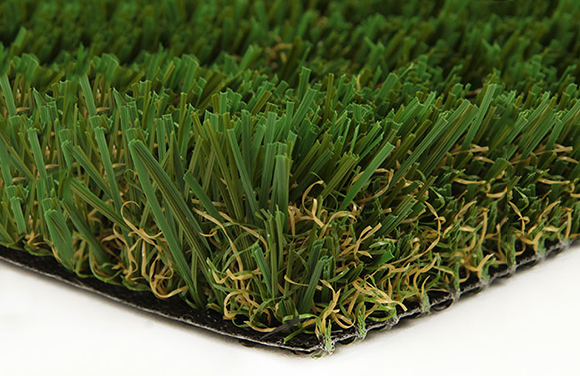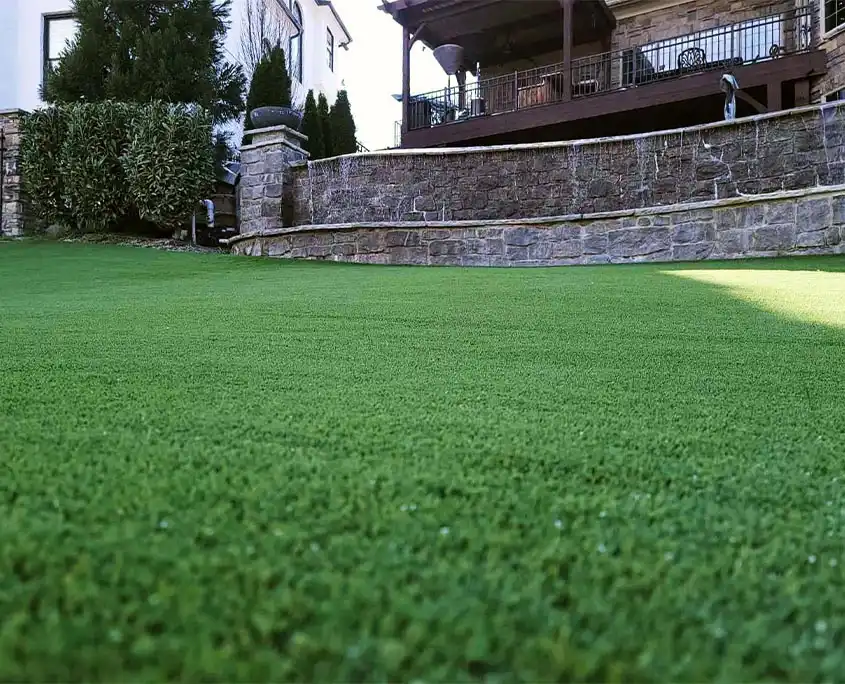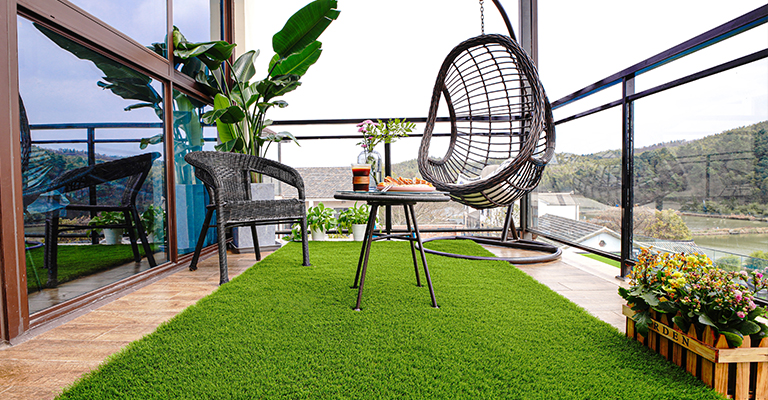Top-Rated Phoenix Turf Companies Focusing on Synthetic Grass Options
Top-Rated Phoenix Turf Companies Focusing on Synthetic Grass Options
Blog Article
Look Into the Environmental Perks of Opting for Artificial Lawn Solutions
The adoption of artificial lawn options provides a compelling chance to resolve pressing environmental obstacles. By significantly reducing water usage and decreasing the application of dangerous chemicals, these choices not only promote sustainable landscape design however likewise safeguard local communities.
Water Conservation Perks
One of one of the most significant benefits of synthetic grass is its capability to preserve water. Traditional yard yards need substantial irrigation, especially in locations vulnerable to dry spell or water limitations. In comparison, synthetic grass does not require watering, considerably lowering the general demand for water resources. This feature is specifically advantageous in deserts where water scarcity is a pressing concern.
By getting rid of the requirement for normal watering, synthetic grass adds to sustainable landscape practices and helps mitigate the ecological influence of excessive water usage. The conservation of water expands to the reduction of drainage, which can lead to soil disintegration and river contamination.
Furthermore, the installation of synthetic grass allows communities and house owners to designate water resources much more efficiently, focusing on crucial usages such as drinking water and agriculture. The change towards synthetic grass not only promotes responsible water usage yet likewise straightens with wider ecological goals aimed at protecting natural deposits.
As areas progressively prioritize sustainability, the water conservation benefits of artificial lawn offer an engaging situation for its adoption in commercial and property landscape design projects.
Lowered Chemical Use
The shift to synthetic grass substantially reduces the reliance on chemical treatments generally used in natural grass maintenance. Conventional lawn management commonly entails the application of chemicals, herbicides, and plant foods to advertise development and control bugs. These chemicals can position risks to human health, neighborhood wildlife, and the atmosphere, contributing to soil and water contamination.
In contrast, synthetic grass removes the requirement for these hazardous materials. Once set up, it needs minimal upkeep, mainly containing normal cleaning and infrequent infill replenishment. This decrease in chemical usage not only benefits the immediate environment yet also adds to more comprehensive environmental stability. By decreasing the launch of synthetic substances into the ecosystem, man-made lawn advertises much healthier dirt and water systems.
Furthermore, the absence of chemical drainage associated with fabricated grass setups helps secure regional rivers from contamination, supporting aquatic life and maintaining biodiversity. Artificial turf companies phoenix. As neighborhoods increasingly focus on lasting techniques, selecting synthetic grass offers a viable remedy that lines up with ecological conservation goals. Via this shift, residential property proprietors can take pleasure in rich eco-friendly spaces without jeopardizing environmental health, paving the way for an extra sustainable future
Lower Carbon Footprint

In addition, the setup of fabricated lawn can cause substantial water preservation. All-natural lawns need significant amounts of water for watering, which not just adds to the carbon impact connected with water extraction and therapy yet likewise strains find more info neighborhood water sources. In contrast, synthetic turf requires marginal upkeep, requiring no watering, thus substantially minimizing water usage and its connected energy costs.
Furthermore, the durability of synthetic grass contributes to its decreased carbon impact. With a my company life expectancy of up to 15 years or more, the need for frequent substitutes is reduced, resulting in less waste and reduced energy consumption in production and taking care of traditional yard alternatives. Overall, fabricated lawn provides a sustainable option for ecologically aware landscape design.
Environment Preservation
Environment conservation is an important factor to consider in the dispute over landscaping options, particularly when contrasting synthetic grass to all-natural turf. Natural lawn lawns frequently require comprehensive maintenance, consisting of the use of chemicals, herbicides, and fertilizers, which can negatively impact neighborhood ecosystems. These chemicals can seep into the dirt and rivers, damaging native plants and animals and interrupting regional habitats.
In contrast, artificial lawn presents an opportunity to decrease the ecological impact of landscaping. By going with artificial turf, home owners can lessen the interruption of all-natural environments connected with traditional yard care methods. Fabricated lawn removes the requirement for hazardous chemicals, thus shielding close-by wildlife and maintaining the stability of surrounding ecological communities. The installation of artificial lawn can lead to the conversion of former turf areas into more biodiverse landscapes, such as pollinator yards or native plant locations, which can support local wild animals.
Inevitably, the transition to synthetic grass not just preserves water and minimizes upkeep initiatives yet additionally cultivates a more harmonious relationship in between human tasks and the native environment, promoting habitat preservation in the process.
Long-Term Sustainability
Lasting sustainability is a critical element in examining the benefits of synthetic grass over typical turf yards. One of the most considerable benefits of fabricated lawn is its Visit This Link durability; it can last approximately 15-20 years with minimal upkeep, whereas natural turf needs regular reseeding and substitute. This long life minimizes the need for constant sources, such as water, plant foods, and pesticides, which are essential for keeping a healthy yard lawn.
Additionally, synthetic grass adds to a reduction in carbon discharges connected with yard treatment equipment. Standard lawns frequently require gas-powered mowers, trimmers, and blowers, every one of which add to air pollution. Arizona turf. In comparison, fabricated turf removes the need for such equipment, promoting a cleaner atmosphere
Moreover, the production of synthetic grass significantly uses recycled products, boosting its sustainability profile. As suppliers embrace environmentally friendly techniques, the environmental footprint of synthetic grass remains to lessen.

Final Thought
The fostering of man-made turf options offers considerable ecological advantages, including significant water preservation, minimized reliance on hazardous chemicals, and a reduced carbon footprint. Moreover, man-made turf help in maintaining all-natural environments by lessening land disturbance and promoting long-lasting sustainability with using long lasting products. Jointly, these aspects highlight the capacity of man-made turf to contribute favorably to ecological health and wellness and provide a sensible alternative to typical landscape design methods in a progressively resource-conscious world.
In comparison, artificial turf does not require watering, considerably lowering the general demand for water sources. By decreasing the release of synthetic substances right into the ecological community, fabricated grass advertises healthier dirt and water systems.
Moreover, the installation of synthetic lawn can result in considerable water conservation. In comparison, synthetic lawn requires very little upkeep, calling for no watering, consequently significantly minimizing water use and its linked energy costs.

Report this page